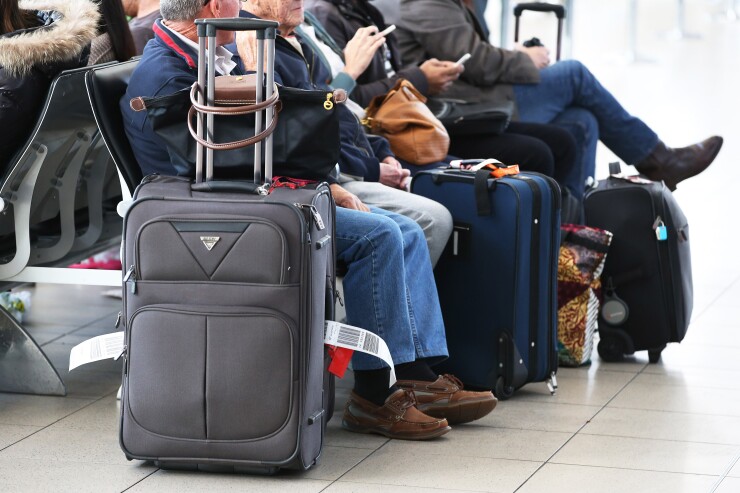Business trips don’t have to be all work and no play. Employers who allow workers to enjoy their travel are actually fighting
The World Health Organization says burnout is caused by chronic workplace stress. Stressed out employees cost the U.S. economy $500 billion every year in lost productivity, according to a study by Mental Health America, formerly known as the National Mental Health Association, a mental health advocacy group. Burned-out employees are also 63% more likely to take a sick day, and more than twice as likely to be looking for alternative employment, according to a study by management consulting firm Gallup.
“In today’s hiring environment its so critical to think about the employee experience,” says Wen-Wen Lam, CEO of NexTravel, a Los Angeles-based corporate travel management company. “Letting employees stay a couple of extra days can really help fight burnout by giving them time to rest mentally and physically.”
Lam spoke with Employee Benefit News about how employers can use business trips to boost employee retention.
Why should employers let workers have leisure time on business trips?
First of all, there’s a real danger of employee burnout on business trips. Being able to stay an extra couple days can help with that after travelling for hours — flying really does take a toll on your body.
Say you went to a conference in Atlanta, by the end of it you’re so tired and you’re bummed out because you haven’t seen much of the city, except maybe stopping at a barbecue joint for lunch. If your boss was okay with letting you stay a couple more days, you could recoup and get back to work feeling refreshed.
I think people really value free time, especially millennials. They will choose your company over another because of flexibility. The market is really hot for talent, so employers can’t afford to ignore this.
How do companies offer this perk?
Using a travel management site, like ours. It doesn’t cost the employer anything to extend a flight, and you’ll have a happy employee who talks about this cool perk they get at work.
Of course, the company doesn’t have to pay for the employees’ accommodations for the extra days they stay. But allowing them the flexibility to stay and enjoy the sights, if they want to, will make them feel valued.
Employers can take it a step further by hosting off-site retreats, where employees participate in team bonding exercises while visiting a new place.
What types of companies offer these perks?
Every industry can offer this perk, it really just comes down to company culture. Some companies are really focused on employee wellness, others aren’t. When you’re deciding whether to incorporate a policy like this, I think you should ask yourself how competitive your hiring is and what’s the culture you want to build here.
Do you have any examples of companies using this perk?
Uber did this early on for team building. They really broke the mold. They had a lot of team offsite events where they took the entire team somewhere to work remotely for a month. Once they went somewhere in South America.
NexTravel did it in the past. We got a house through Airbnb at the city we decided to visit. This way, people were able to get out of a traditional work day and produce ideas. We actually created our NexTravel Hire platform during one of these offshore sessions. It was something we’d been meaning to do, but couldn’t with all the day-to-day operations. By taking a step back and going away as a team, we were able to brainstorm and collaborate to create something unique.






